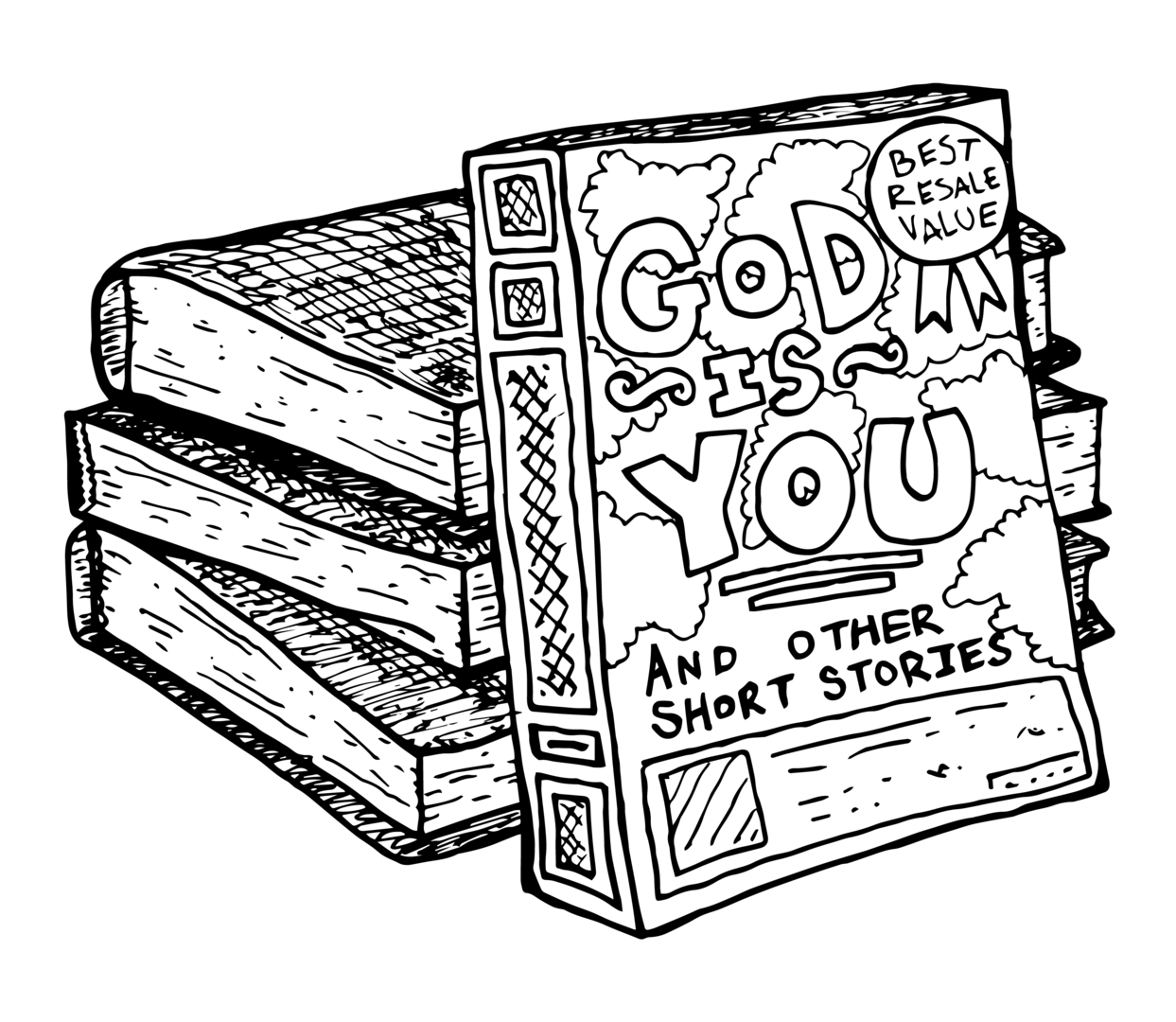Used book stores have a distinct colour palette. Warm light, a hint of a flicker. A variety of books with their distinct covers, together they make a collage of hues — illusion of a pattern.
Visiting them regularly, one begins to take note of recurring titles. My post-Sociology 255: Introduction to Social Research mind wonders if there’s a correlation between the types of people who give away books, and the books they read. Myself, I lend out but never give books away. I buy and rarely borrow.
Certain titles on the shelves of used book stores always catch my eye. Certain titles are always in multiples. I have never not seen several copies of “Wild” and “Eat Pray Love” along with “The Handmaid’s Tale” and “Life of Pi.” I haven’t read these books. Supply exceeds demand.
Used book store shelves reflect social changes, but with a delay. I expect to see multiple copies of “Kitchen Confidential” in the coming months.
Today I peruse the religion and spirituality section for a quick taste of what might be hiding from the non-fiction shelves. Here, social change isn’t as overt, but is just as enduring.
“Your Best Life Now.”
“Finding a Man Worth Keeping.” A how-to guide?
My favourite of the day: “Can a Smart Person Believe in God?”
There’s a wide variety of subgenres within the religion and spirituality section, but it all seems to centre around self-help.
“Twelve easy to put into practice, bite sized, darn near point form ways you can feel like you’ll get out of this rut for the couple days you keep interest in this book,” practically.
Admittedly I’ve read a few of them, partly out of curiosity, partly because there truly is gold in some. Most boast empty promises.
Jessica Lamb-Shapiro, author of “Promise Land,” quoted in the Boston Globe says: “What a lot of people want when they go to self-help books is to just feel better. And it doesn’t take that much to feel better. You feel better buying the book.”
Looking at Amazon.ca’s bestselling lists, a near-infinite scroll reveals books that promise a better you. What does this say about book buyers?
“Lose Weight By Eating.”
“Just Sit: A Meditation Guidebook for People Who Know They Should But Don’t.”
“You Are a Badass.”
These are from the “Be all you can be” and “The power is in you” genre. The religion and spirituality section, I believe, is a subsection of this. The same themes emerge and remerge: how to change yourself, how to be a better you, how to live, etc. They all promise immediate transformation; they all sell the illusion of a better you.
It impresses me how often an author’s name appears larger than the book’s title, and their face is the entire front cover. As I become familiar with the regulars, I start to recognize who the author is from the look of the book’s spine, before reading any of the text. Branding. Talk about selling a personality.
This is why I think Nietzsche’s “God is dead” no longer stands; few truly believe it. They can’t, it defies the most knowable thing, and what the religion and spirituality section sells: you are God.
Readers of “The Gay Science” know that Nietzsche means this not as a declaration of the deceased but of a shift in perspective: we’re no longer bound to God-centred exclusivity. But where the idea of an external God was held, the self-God now fills the void. The void that it left, that Nietzsche feared would result in nihilism — the will to nothingness — is filled by reason, but not reason alone. It’s joined by the pride in our ability to make ourselves perfect, and a full-blown infatuation with the self.
It’s not a result of a culture that’s afflicted by self-doubt and anxiety, but one that grew up believing it should and deserves to be perfect, I think.
The self is God. That’s what these religion and spirituality books suggest to me. It’s all about the self, focusing inward. And yet the books these claim to generate their theology from suggest something entirely opposite, an other-centred view.
It reminds me of something I read recently: “Like a mirror, God appears to be more and more a reflection of whoever it is that happens to be talking about God at the moment.” Seems accurate. But what do I know, I peruse the religion and spirituality section at used book stores.
Image: Caleb Campbell/The Cascade


